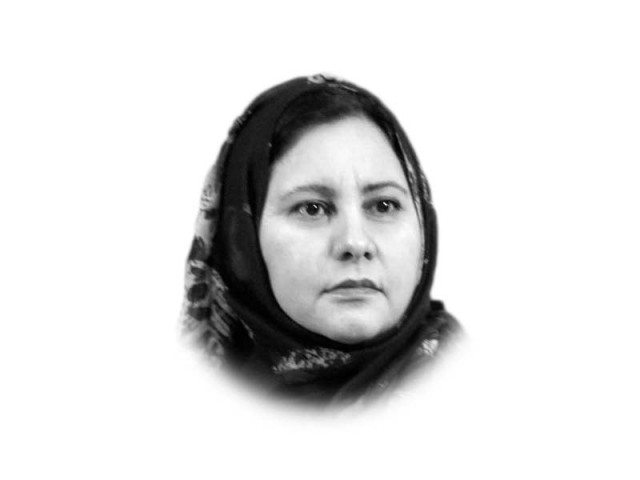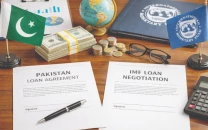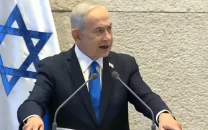The Great Game 2.0
The Great Game 2.0

The so-called Great Game was played in Afghanistan and Persia in the 19th century between the Russian and British Empires. The Russian Empire in its relentless expansion had gulped in most of Central Asia that had been under Persian control; taken away most of the Caucasus that had been under the Ottomans; and annexed Eastern Europe. The British on the other hand had colonised most of the Indian Subcontinent and Burma, and China had been pushed into its Century of Humiliation.
This is not to say that colonies were not being expanded in other regions of the world; they were. But here in Asia the two empires had come head-to-head. The expansion of the Russians was on all sides: they were a threat to the Ottomans, to the Persian Qajar Empire and to Europe alike. Just to put a stop to Russian expansion, the British allied with the Ottomans against the Russians in the Crimea War (1853-56), though all this time the British were eating upon Ottoman lands in North Africa. At the same time, though Russia was eating up Persian protectorates in Central Asia and had its eyes on Afghanistan, it gave a wink to Persia to seize Herat in 1855, just to stop it from falling into the lap of the British. Yet, the British were never able to fully occupy Afghanistan either, even after the three Anglo-Afghan Wars.
The Great Game, however, was a constant struggle between the two empires to get Persia and Afghanistan or at least maintain them as a buffer zone between the two. In this, the two forced Persia and Afghanistan to keep their ‘residents’ right inside their courts, so that they would be privy to the internal matters of the states and be in the position to control them. Interestingly, at this stage the so-called kings of the two countries had become mere rent-seekers from Russia and Britain, receiving annual subsidies from them in return of loyalties.
Officially the Great Game came to an end in 1895 with the Pamir Boundary Commission drew a boundary between Russia and Afghanistan and in 1907 with the Anglo-Russian Convention in which Persia was cut into three layers — the north to be under Russian influence, the south under British, and the central to remain as a buffer. Yet, in spite of all intrigues, the dream to colonise the two countries remained unfulfilled, and thus the Great Game is yet inconclusive.
This dream, of course was not new; Russia’s Queen Catharine expressed her wish to reach the warm waters of the Arabian Sea in 1791. Later, in 1904, English geographer Mackinder presented the Heartland Theory with an opposing dream of pushing up the Arabian Sea right into the Russian domain. Post-WWII, when the US had taken the flag from Britain, Carter’s National Security Advisor Brzezinski in his book, The Grand Chessboard, argued that the next big war would take place in Afghanistan and the US would need to control this region (that includes Central Asia) in order to control global political affairs. So, we see when Britain was weakened post-WWII, that USSR seized the first opportunity to invade Afghanistan, with the US and Britain backing the mujahideen. And as soon as the USSR was defeated and broken, we saw the US and its allies running into Afghanistan again!
Iran too remained under complete British influence right up to the removal of the Pahlavi King by the Ayatollah. Now, with the British Oil Company out of Iran and the US out of Afghanistan, is the Great Game finally over?
Have the US and allies stopped craving for Central Asia and Eastern Europe, and has Russia forgotten the warm waters?
Fast forward to today. In Eastern Europe the Ukraine War has been a total disaster for the Ukrainian people, and there is no sign they can win! Yet the US has pledged $61 billion more for weapons to Ukraine, and Zelensky has uttered that he is working on another 10-year plan of weapons and aid with Biden. That would mean another 10 years of war, deaths, displacements and razing down of cities — not a big price the US would be paying for the ‘dream’ of global hegemony. And all they had to do was to employ Victoria Nuland and the lot to make intrigues into Ukraine’s politics and have a Jewish comedian with no political background elected as President; and he would immediately voice NATO membership and the show would begin!
With the US kicked out of Afghanistan, its gateway into Central Asia had been obstructed too! But there is still a rook the US can play with here — Pakistan. The US after its embarrassing withdrawal from Afghanistan reverted to Plan B, which was Pakistan. In Ukraine, there was attempt to intervene in its national politics, and there was attempt to initiate war between Pakistan and Afghanistan or Iran, thus creating a new instability in the regional chessboard that would in time pave the way for the US to reach Central Asia and to the doorstep of Russia. Here too, the US would gladly give $61 billion or more, so that Pakistan would willingly fight another war for another American Century at the cost of shattering its own economy and devastating the lives of its own people.
What might have gone on under the table — with first the IMF visits, and lately the Saudi FM’s and President Raisi’s visits, and now the US Un¬¬dersecretary for Political Affairs’ visit — is anybody’s guess. But clearing the state must be struggling with a tug-of-war between regional and global entities. One should keep in mind President Joe Biden writing to Pakistan last month how “enduring [the US-Pakistan] partne¬rship” was for “ensuring the se¬¬¬curity of our people — and people around the world”. Like maybe he was saying that if we don’t fight another US war, world peace would be at risk! Like he was warning Pakistan not to let the Chinese and the Russians reach the warm waters at Gwadar with a mere handshake! Like he was asking Pakistan to choose sides in the Great Game 2.0!
It seems that the Iranians and the Afghans have learned it the hard way, from a history of intrigues and weak rulers that have preferred to be rent-seekers instead of sovereign rulers. Today, they have finally said an absolutely-not to foreign intervention and intrigue. But what about Ukraine and Pakistan? Are we going to be rent-seekers? How will we choose between billions of dollars and sovereignty; between vested interests and the future and prosperity of the people; between playing a pawn or playing the knight? Will we choose the rent?
Published in The Express Tribune, May 3rd, 2024.
Like Opinion & Editorial on Facebook, follow @ETOpEd on Twitter to receive all updates on all our daily pieces.















COMMENTS
Comments are moderated and generally will be posted if they are on-topic and not abusive.
For more information, please see our Comments FAQ